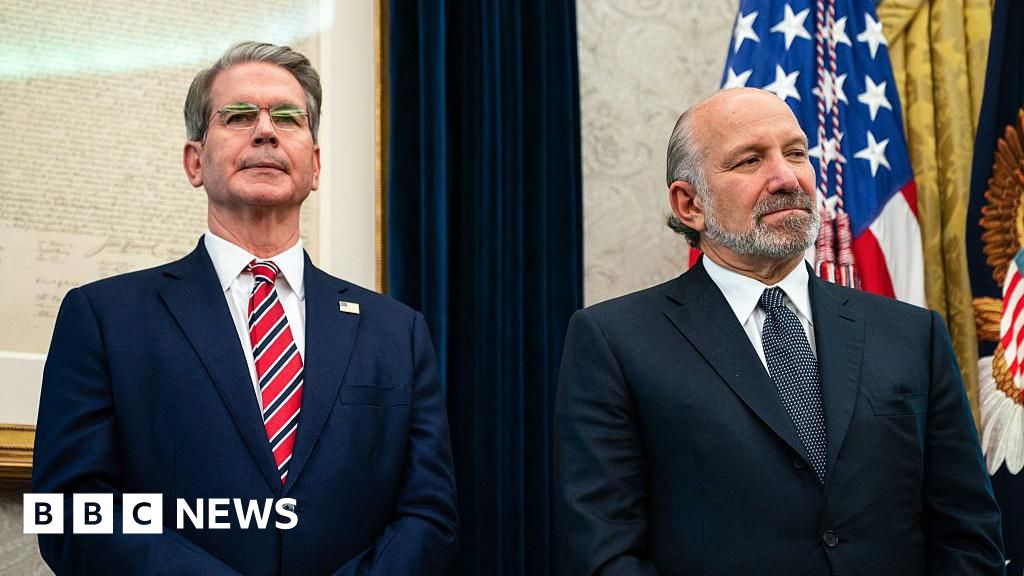- Education
Keir Starmer’s balancing act on Iran risks political pain at home
时间:2010-12-5 17:23:32 作者:Social Media 来源:India 查看: 评论:0内容摘要:"These pockets work only until the state pushes back. Then the zones collapse, and thousands die. It's time to ask - can a revolution really be led from cut-off forestlands in today's India?""These pockets work only until the state pushes back. Then the zones collapse, and thousands die. It's time to ask - can a revolution really be led from cut-off forestlands in today's India?"
A Department of Health and Social Care spokesperson said it knew "how frustrating and distressing" medicine supply issues can be for patients and clinicians caring for them.They added: "The European-wide supply issues with Creon are caused by a limited availability of raw ingredients and manufacturing capacity constraints.

"We are working closely with industry and the NHS to mitigate the impact on patients and resolve the issues as quickly as possible."Get our flagship newsletter with all the headlines you need to start the day.It's a grim paradox, doctors say.

On the one hand, antibiotics are being overused until they no longer work, driving resistance and fuelling the rise of deadly superbugs. On the other hand, people are dying because they can't access these life-saving drugs.A new study by the non-profit Global Antibiotic Research and Development Partnership (GARDP) looked at access to antibiotics for nearly 1.5 million cases of carbapenem-resistant Gram-negative (CRGN) infections across eight major low- and middle-income countries, including India, Brazil and South Africa. CRGN bacteria are superbugs resistant to last-line antibiotics - yet only 6.9% of patients received appropriate treatment in the countries studied.

India bore the lion's share of CRGN infections and treatment efforts, procuring 80% of the full courses of studied antibiotics but managing to treat only 7.8% of its estimated cases, the
in The Lancet Infectious Diseases journal reports. (A full drug course of antibiotics refers to the complete set of doses that a patient needs to take over a specific period to fully treat an infection.)According to South African law firm Werksmans Attorneys, this suggested it would mainly, or perhaps only, happen in relation to the land reform programme.
Although it could also be used to access natural resources such as minerals and water, the firm added,Mabasa and Karberg told the BBC that in their view, productive agricultural land could not be expropriated without compensation.
They said any expropriation without compensation – known as EWC – could take place only in a few circumstances:Owners would probably still get compensation for the buildings on the land and for the natural resources, the lawyers said.
- 最近更新
- 2025-07-07 04:35:44The US ‘has the delusion they run the show’: Jeffrey Sachs
- 2025-07-07 04:35:44The US ‘has the delusion they run the show’: Jeffrey Sachs
- 2025-07-07 04:35:44An ancient writing system confounding myths about Africa
- 2025-07-07 04:35:44Netanyahu visits site of Iranian missile strike in Israel
- 2025-07-07 04:35:44Southern Baptists move to end same-sex marriage in the US
- 2025-07-07 04:35:44MPs set to vote on decriminalising abortion in England and Wales
- 2025-07-07 04:35:44Video Duration 25 minutes 00 seconds play-arrow25:00
- 2025-07-07 04:35:44'My children are too anxious for school - please help me get them educated'
- 热门排行
- 2025-07-07 04:35:44How to find a trusted retirement advisor for peace of mind in your golden years
- 2025-07-07 04:35:44Police name man and daughter killed in house fire
- 2025-07-07 04:35:44Monthly Statistical Snapshot, May 2025
- 2025-07-07 04:35:44As Israel strikes Iran, what happened to ‘America First’?
- 2025-07-07 04:35:44Joanna Gaines’s Apple Baked Beans
- 2025-07-07 04:35:44Family of Cole Cooper 'shattered' after police find body
- 2025-07-07 04:35:44credit cards that offer 0% introductory APR
- 2025-07-07 04:35:44'It was fuelish' and '£14bn for nuclear'
- 友情链接
- US moves B-2 stealth bombers into Pacific as Trump weighs entering war What matters now is Tehran’s response Sánchez torpedoes Nato unity on eve of crucial summit Campaigners launch legal challenge to Thames Water reservoir plan Building the product shelf of the future Trump tracker: the latest data on US tariffs, trade and economy The truth about Mark Zuckerberg’s macho-man makeover Keir Starmer’s balancing act on Iran risks political pain at home Farage to offer non-doms £250,000 fee to avoid UK tax for life Oman to be first Arab state in the Gulf to levy personal income tax End Nato secrecy to convince voters on defence spending, says Lithuania Building the product shelf of the future Trump faces backlash from Maga base Subsidies for locals and tax-free salaries have left region fiscally vulnerable End Nato secrecy to convince voters on defence spending, says Lithuania Building the product shelf of the future The raids attacked research and centrifuge arrays that Tehran has built up over decades Travel outside your political tribe? Many are saying no thanks PM Shigeru Ishiba’s LDP defeated ahead of upper house vote next month Sánchez torpedoes Nato unity on eve of crucial summit Trump faces backlash from Maga base Farage to offer non-doms £250,000 fee to avoid UK tax for life UK output price inflation hits 4-year low, survey shows Oman to be first Arab state in the Gulf to levy personal income tax The 10 most entertaining terraces in London Trump tracker: the latest data on US tariffs, trade and economy The raids attacked research and centrifuge arrays that Tehran has built up over decades PM Shigeru Ishiba’s LDP defeated ahead of upper house vote next month Trump’s fateful choice on Iran Trump gambles his presidency as US enters war with Iran
